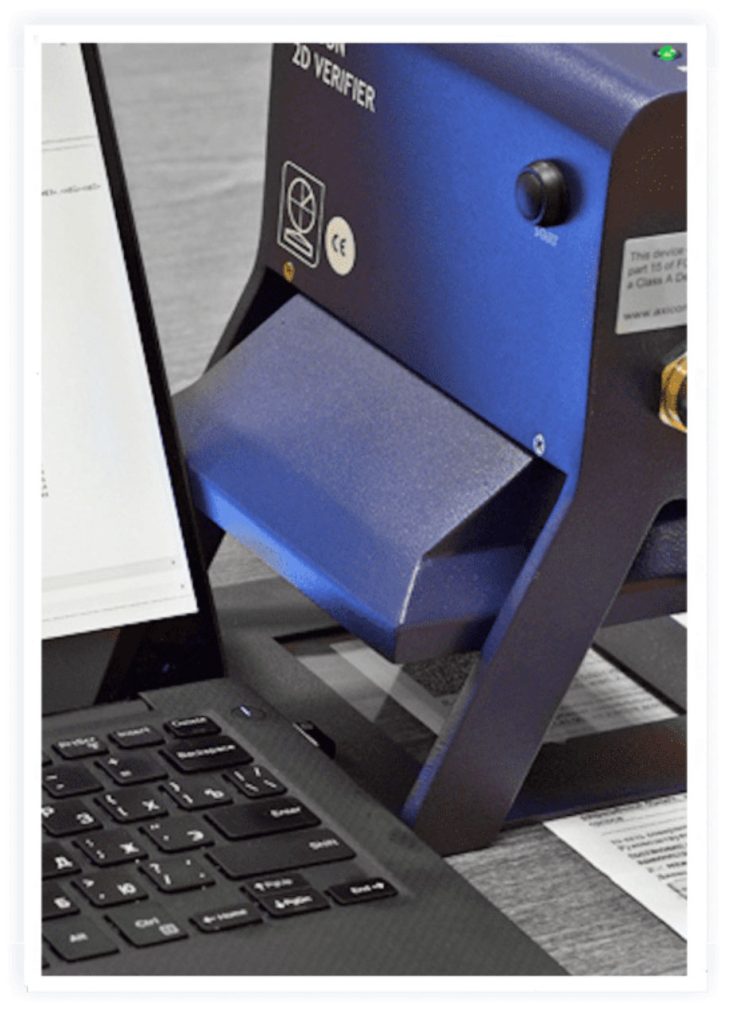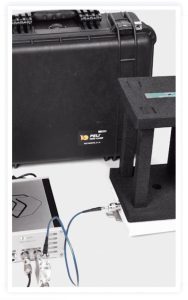Accredited testing laboratory
RFID Laboratory was established in 2009 by Centre for Identification Systems of the National Academy of Sciences of Belarus, the main GS1 Belarus partner. It aims at development and widespread implementation of automatic identification technologies in the republic.
In 2012, having support of GS1 Belarus, the RFID Laboratory transformed into a RFID/EPC Laboratory. The laboratory promotes implementation of international standards and recommendations for development of automatic identification technologies in Belarus, conducts research and development of automated systems and is actively involved in standardization activities at the national level. A number of leading Belarusian universities use the laboratory to carry out research and provide training for highly skilled specialists.
The RFID/EPC Laboratory cooperates with most Belarusian enterprises. It provides the possibility to perform laboratory-based modeling of manufacturing processes implementing RFID technology. This modelling is performed by means of advanced technology solutions developed by leading European manufacturers, which are designed to perform a variety of tasks – from analysing the efficiency of RFID systems implementation to developing large-scale projects together with various developers and equipment suppliers.
The laboratory regularly conducts seminars for the enterprises registered at GS1 Belarus and is actively involved in relevant national and international conferences and exhibitions. The laboratory is equipped with modern equipment essential for carrying out research and launching new projects using RFID technologies in the HF and UHF ranges.

The laboratory provides the following services:
- Checking the printing quality of barcode symbols used for marking goods:
— one-dimensional (EAN8, EAN13, ITF14, Code 39, Code128)
— two-dimensional (GS1 DataMatrix, DataMatrix, QR-code) - Verification of the legality of use of global product identifiers, applied as barcodes.
The barcode verification report meets international requirements:
- Сontains comprehensive information on the test results;
- Сontains a detailed description of the bar code symbols;
- Is an official quality assurance document;
- Includes recommendations on how to achieve the desired quality.

Within the framework of the regulatory metrology system the testing laboratory carries out:
- Testing of performance of RFID tags complying with the most common standards:
— ISO/IEC 18000-63 (EPCglobal Class1 Gen2), UHF range, 860-960 MHz;
— ISO/IEC 15693, ISO/IEC 14443, NFC, HF range, 13.56 Mhz - Measurement of receiver sensitivity of the ISO/IEC 18000-63 (EPCglobal Class1 Gen2) compliant RFID readers used for fixed and mobile devices
In the testing laboratory you can:
- Check tuning and sensitivity of RFID tags;
- Determine the influence of the materials into which the tags are integrated on their performance;
- Find the most effective solutions after examining the dependence of the tag
reading range on the tag’s orientation in space; - Choose the optimal conditions for tagging items (goods);
- Simulate the performance of RFID tags with different types of readers.
